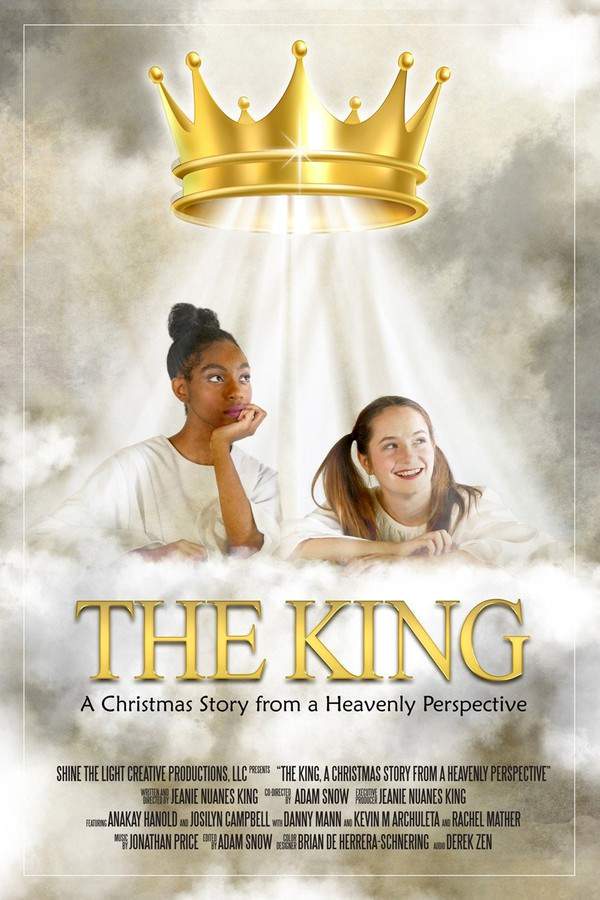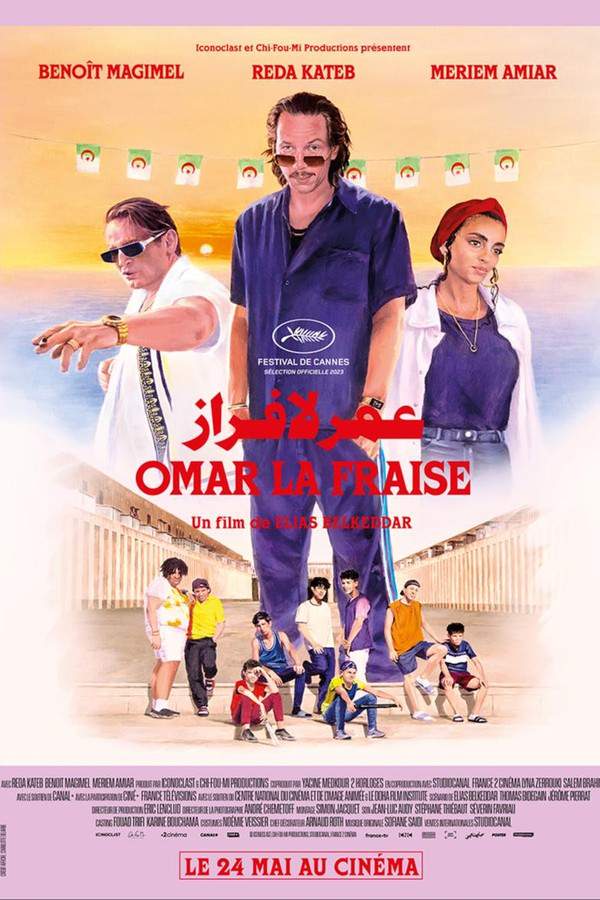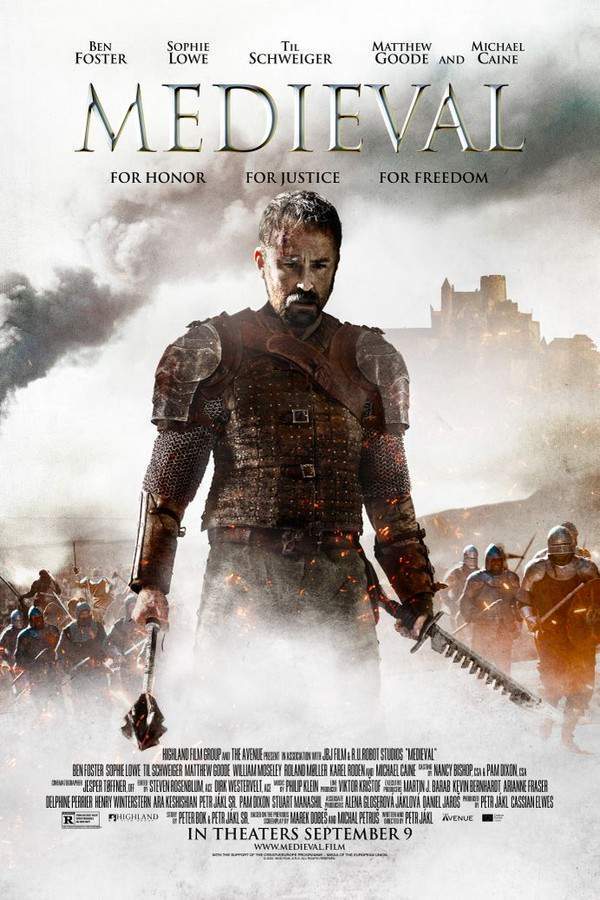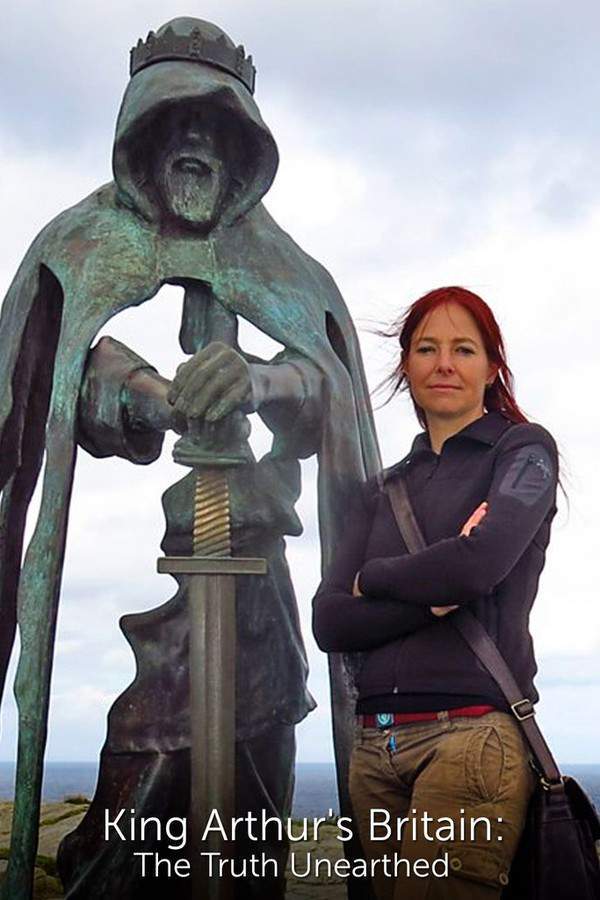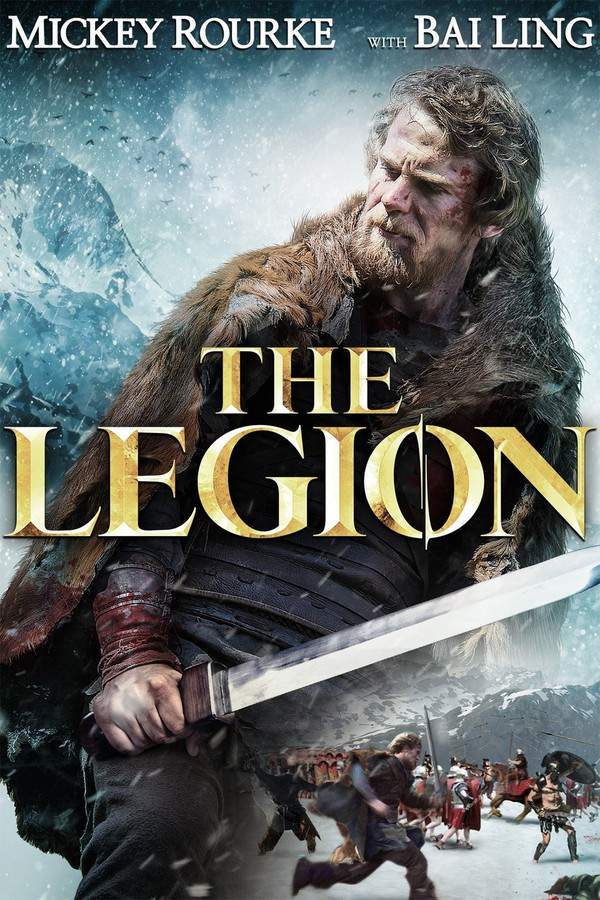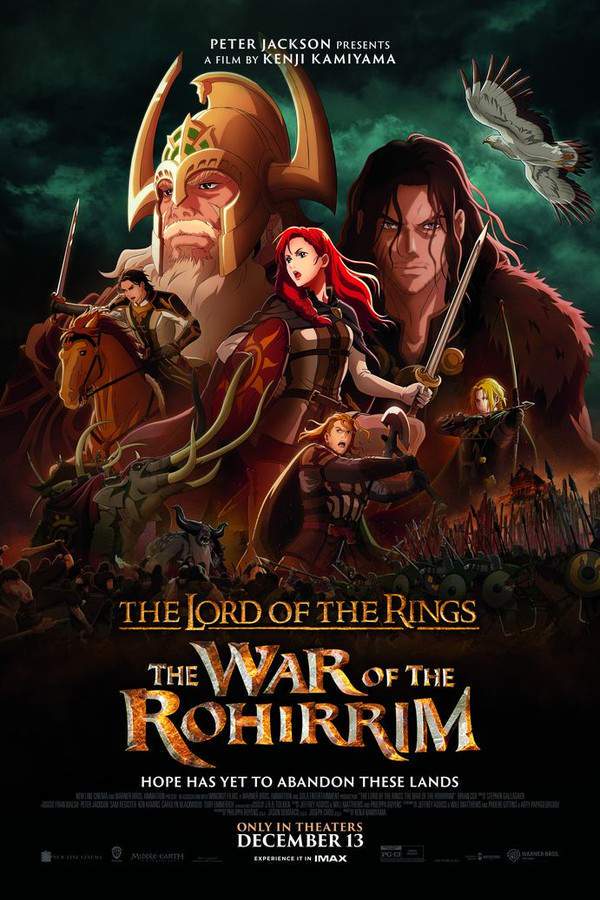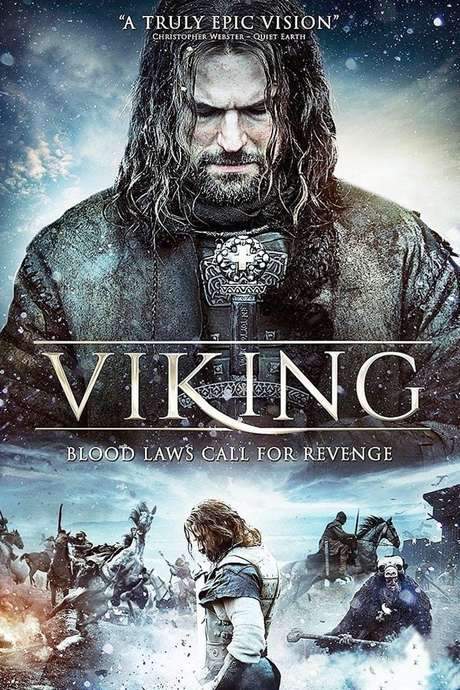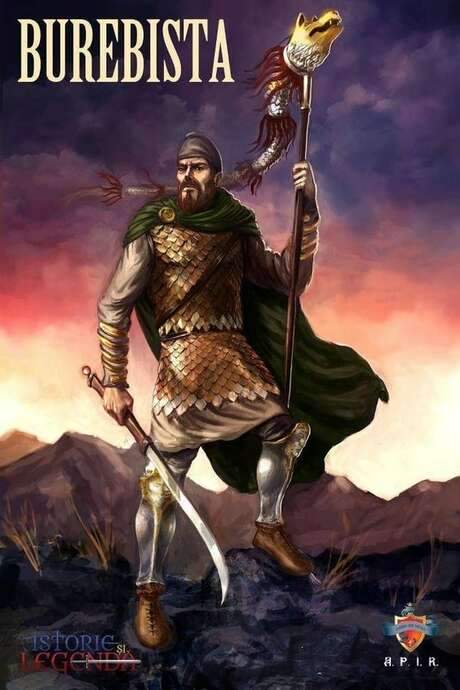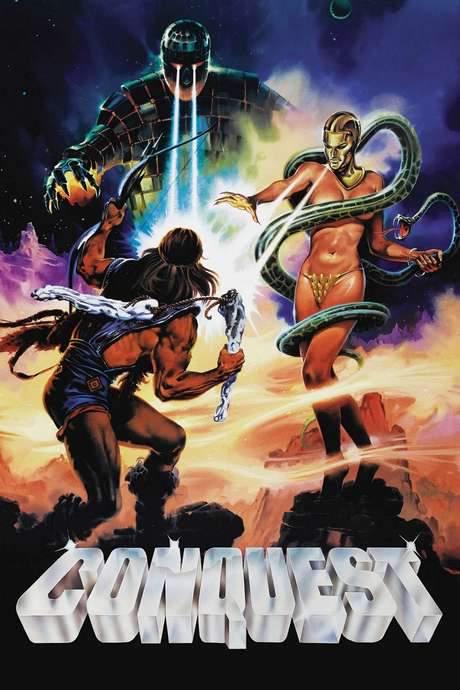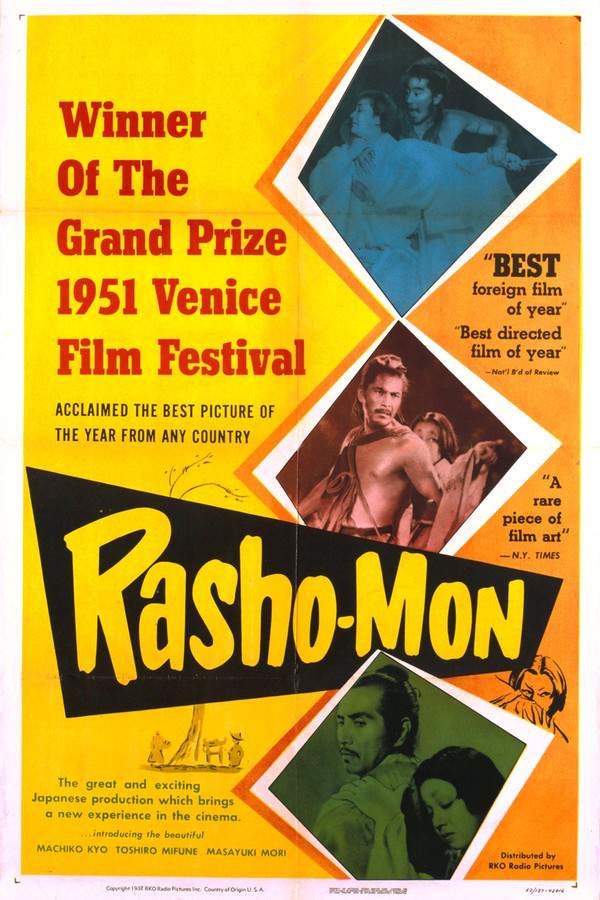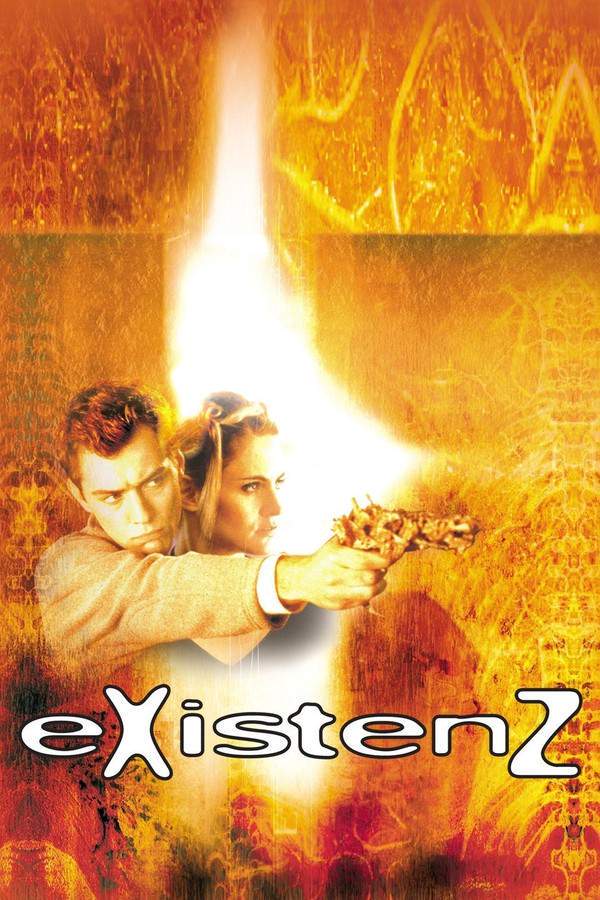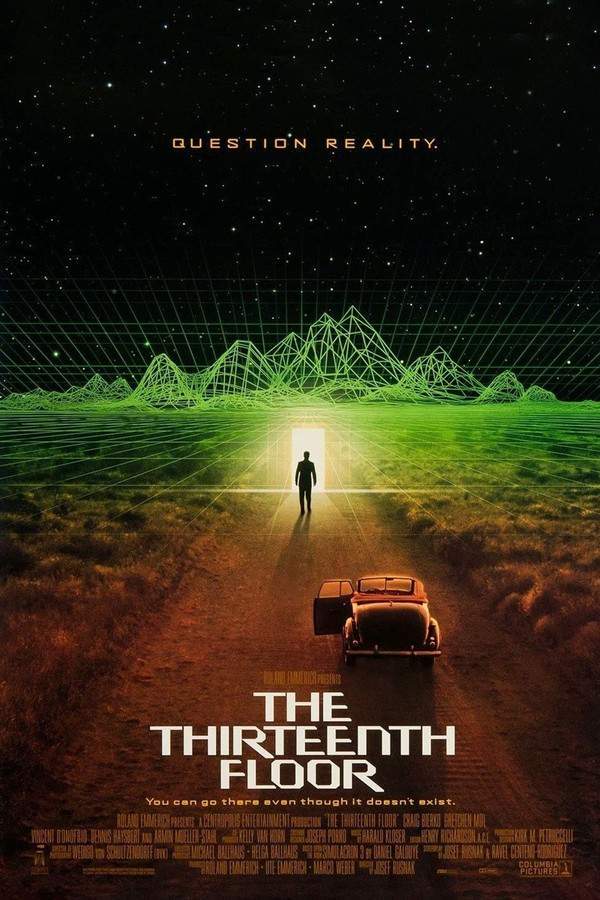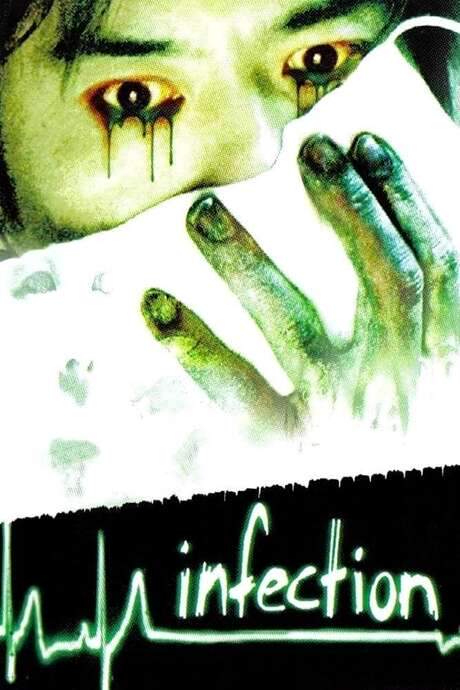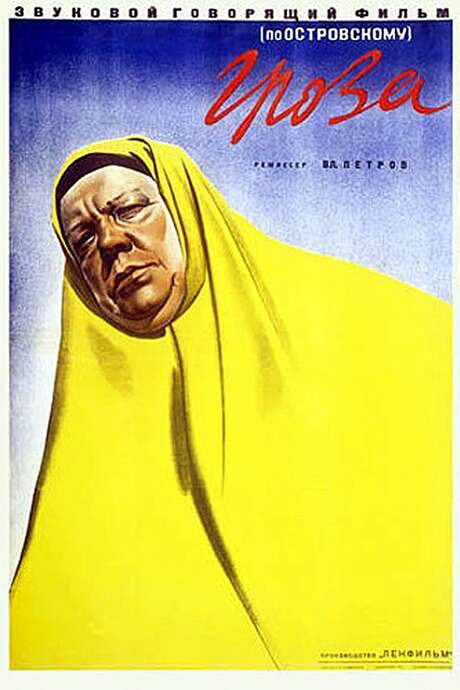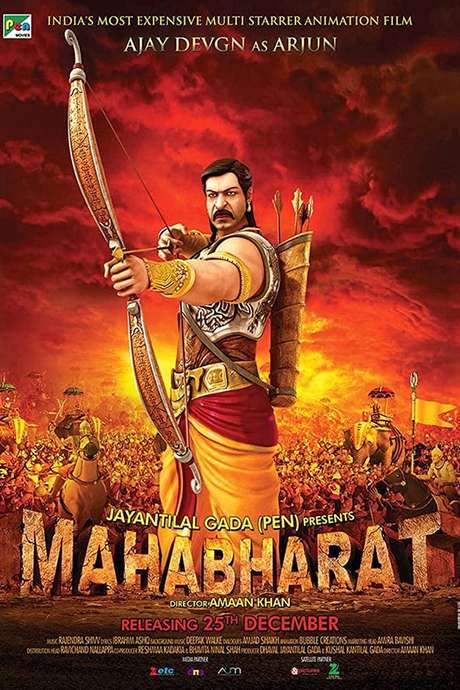
Mahabharat
Year: 2013
Runtime: 119 mins
Language: Hindi
Director: Amaan Khan
Considered the greatest and longest epic in world literature, this sprawling saga encompasses a vast range of themes and emotions. It explores conflict, duty, sacrifice, heroism, truth, justice, romance, adventure, fantasy, and complex relationships. The narrative delves into the intricacies of human nature and the consequences of choices, making it a truly captivating and all-encompassing story.
Warning: spoilers below!
Haven’t seen Mahabharat yet? This summary contains major spoilers. Bookmark the page, watch the movie, and come back for the full breakdown. If you're ready, scroll on and relive the story!
Mahabharat (2013) – Full Plot Summary & Ending Explained
Read the complete plot breakdown of Mahabharat (2013), including all key story events, major twists, and the ending explained in detail. Discover what really happened—and what it all means.
Mahabharat is considered the greatest and longest epic in world literature, a sprawling saga that weaves together conflict, duty, sacrifice, heroism, truth, justice, romance, adventure, fantasy, and complex relationships into one endlessly fascinating narrative.
Kunti, Deepti Naval, is granted a secret mantra by the sage Durvasa to call gods for sons. She uses the power of the mantra as a test, and the Sun God answers, begetting Karna, Anil Kapoor. Yet she remains unmarried and, bound by circumstance, entrusts Karna to the river Ganga. Later, she marries Pandu and bears three god-kissed sons: Yudhisthir, Manoj Bajpayee, Bheem, Sunny Deol, and Arjun, Ajay Devgn. Pandu’s joint wife Madri bears Nakul and Sahdev. Pandu’s elder brother Dhritarashtra, Paresh Rawal, is blind and married to Gandhari, Reema Lagoo. They have a hundred sons, with Duryodhan, Jackie Shroff as the eldest. All the royal princes are trained by Dronacharya, Ashutosh Rana.
Years pass, Pandu dies, and Dhritarashtra becomes king. A royal assembly is convened to present the princes to the people under the stern watch of Bhishma, Amitabh Bachchan. Drona singles out Arjun as the finest archer in the land, and a clash between Bheem and Duryodhan ends in a draw. Karna challenges Arjun, while Shakuni, Anupam Kher, the maternal uncle of Duryodhan, and Dushasana, Vrajesh Hirjee, his younger brother, lurk in the background. Arjun refuses to fight Karna when Bheem points out that the challenger is the son of a charioteer, and Kunti recognizes Karna as her son but stays quiet. Shakuni seizes the moment, and Duryodhan names Karna the King of Anga to pit him against Arjun. The duel between Arjun and Karna ends in a draw, stirring the seeds of the wars to come.
In the royal verdict, Bhishma and Vidur declare Yudhisthira the crown prince, but Duryodhana feels cheated of his rightful seat. Shakuni engineers a ruthless plan to burn the Pandavas alive in a palace built of combustible materials, a scheme that is foiled with Vidur’s help as the brothers escape. The Pandavas cross the river with Vidur’s guidance, beginning a period of exile and concealment. During this time, Bheem protects his brothers in the forest, and a romance sprouts when Hidimba falls for him. Bheem defeats Hidimb, at the cost of his rival’s life, while Kunti arranges a boon through Hidimba for her son.
Back in the world of courts and contests, King Drupad announces Draupadi’s swayamvar, drawing many kings, including Karna and Duryodhan. Arjun arrives in disguise as a sage, and Draupadi declines to marry the son of a charioteer. Arjun later appears as a Brahmin, and Duryodhan objects, trying to kidnap Draupadi. Krishna, Shatrughan Sinha, intervenes and reveals Arjun’s true identity, allowing him to win the Swayamvar. Draupadi returns home with Arjun, and a miscommunication leads Kunti to tell her sons to share whatever they receive, not realizing Draupadi’s own wishes. Krishna explains that Draupadi had asked Shiva for a husband in a previous life and, in this life, received a boon that binds her to five husbands, so the Pandavas must return to Hastinapur after five years of exile.
Back at Hastinapur, Bhishma urges the division of the kingdom, but Shakuni’s scheming shuffles land and power until the Pandavas are driven to Desolate lands. Indraprastha is then conceived as a majestic city through Vishwakarma’s crafts, directed by Indra’s command to build a palace that will house the eventual rule of the Pandavas. Bheem defeats Jarasandha, releasing a hundred kings who align with Yudhisthira and pledge loyalty to the new monarch. Arjun’s alliance with Subhadra, Krishna’s sister, is sealed as Subhadra bears Abhimanyu, and Draupadi’s presence heightens the stakes of every move on Hastinapur’s chessboard.
Duryodhan visits the magical Indraprastha palace and Draupadi’s courage in a later encounter with a water-filled moat becomes a symbol of honor and retribution. Arjun and Yudhisthira assure Draupadi that their earlier dispute is behind them, but the insult sows a quiet, burning revenge beneath the surface. A fateful gambling match then tests Yudhisthira’s weakness: he loses the kingdom, his brothers, and finally himself—and even Draupadi. Dushasana drags Draupadi to the court and Duryodhan orders her public disrobing. The insult becomes the spark that intensifies the conflict, and Bheem vows retribution, while Draupadi vows not to wash her hair until Dushasana’s blood is shed. Krishna steps in to halt the outrage, and Dhritarashtra shies away from the mounting crisis, restoring the Pandavas’ rights only to see the family fracture again as exile looms.
The Pandavas retreat to the forest, where Bheem meets Hanuman and gains the strength of a hundred elephants, and Arjun earns powerful weapons from Shiva and Parvati. After twelve years of disguise, they choose to reveal themselves in the Virat realm. Bheem works as a cook, Draupadi as a maid, Arjun as a dance master, Nakul as a weapons keeper, Sahdev as a stable boy, and Yudhisthira as the king’s advisor, living incognito until the term ends. Krishna arrives at Hastinapur to press for the Pandavas’ share, and Duryodhan refuses even the modest proposal of five villages, prompting Krishna to reveal his Vishnu form and depart, leaving the issue unresolved and the war looming.
War preparations begin in earnest. Bhishma is named commander-in-chief, vowing not to fight Karna. Armies gather, and Arjun’s doubts resurface until Krishna, again, offers the story of the Gita and reveals a broader, eternal vision that convinces him to take up arms. To defeat Bhishma, Shikhandi is placed in front of Arjun; Bhishma recognizes Shikhandi as the woman he wronged in a past life, and Arjun unleashes a relentless storm of arrows that finally brings Bhishma to a bed of arrows.
Dronacharya becomes the next commander and launches the Chakravyuh, with Abhimanyu stepping forward to breach the formation. Although he fights valiantly, Shakuni’s support falters as Abhimanyu is killed, cut down in the net of warriors. After Drona’s death, Karna is appointed chief in command. Kunti reveals to him that she is his mother and begs mercy for her sons; Karna promises to spare all but Arjun, explaining that he has already sacrificed his solar armor to Indra, who disguised himself as a beggar. The ferocity of the battle crescendos with Karna’s death when his chariot becomes stuck, and Arjun, at Krishna’s insistence, seals the fate of the warrior who had slain Abhimanyu while he was vulnerable.
The conflict culminates in Shakuni’s death at Sahdev’s hand, and Duryodhan’s retreat when Bhim yanks Dushasan’s arm and blood is offered to Draupadi to wash and bind her hair anew. The Pandavas relentlessly pursue the remaining Kauravas to a pond where Duryodhan is slain by Bhim, who breaks his thigh in a final act of vengeance. In the aftermath, Yudhisthira is crowned king of Hastinapur. In a final, public acknowledgment, Kunti reveals Karna as her son, and Yudhisthira vows to carry Karna’s legacy forward by donating gold every day, a pledge that binds the fates of all who have walked this legendary, entwined path.
Last Updated: October 01, 2025 at 10:24
Explore Movie Threads
Discover curated groups of movies connected by mood, themes, and story style. Browse collections built around emotion, atmosphere, and narrative focus to easily find films that match what you feel like watching right now.
Epic tragedies of moral collapse like Mahabharat
Grand stories where a dynasty tears itself apart over honor, duty, and vengeance.For viewers seeking movies like Mahabharat, this thread gathers epic stories of dynastic conflict and moral downfall. If you liked the grand scale and heavy emotional weight of Mahabharat's war, you'll find similar tales of honor, betrayal, and the tragic cost of power in these recommendations.
Narrative Summary
These stories typically follow a powerful family or dynasty over a long period, charting their descent into internal conflict. The narrative often escalates from personal slights and betrayals to a cataclysmic, fated confrontation, exploring the gray areas between duty, righteousness, and destruction.
Why These Movies?
Movies in this thread share a grandiose scale, a dark tone centered on moral conflict, and a heavy emotional weight. They deliver a similarly intense and tragic viewing experience, where victory is often hollow and the cost of power is devastatingly high.
Philosophically complex sagas similar to Mahabharat
Dense narratives where divine prophecy and human choices collide with devastating results.If you appreciated the deep philosophical questions and very complex narrative of Mahabharat, this thread collects movies with similar intellectual depth. These recommendations are for viewers who enjoy stories that blend high drama with profound explorations of fate, justice, and the human condition.
Narrative Summary
The narrative pattern involves multiple, interwoven character arcs that are shaped by past actions, prophecies, or divine intervention. The central conflict is often as much an internal, philosophical debate as it is an external, physical struggle, leading to a resolution that is deeply thought-provoking.
Why These Movies?
This thread groups movies based on their very high narrative complexity and heavy thematic focus on philosophy and morality. They share a steady, deliberate pacing that allows for deep exploration of ideas, creating a similarly intellectually and emotionally demanding experience.
Unlock the Full Story of Mahabharat
Don't stop at just watching — explore Mahabharat in full detail. From the complete plot summary and scene-by-scene timeline to character breakdowns, thematic analysis, and a deep dive into the ending — every page helps you truly understand what Mahabharat is all about. Plus, discover what's next after the movie.
Mahabharat Timeline
Track the full timeline of Mahabharat with every major event arranged chronologically. Perfect for decoding non-linear storytelling, flashbacks, or parallel narratives with a clear scene-by-scene breakdown.

Characters, Settings & Themes in Mahabharat
Discover the characters, locations, and core themes that shape Mahabharat. Get insights into symbolic elements, setting significance, and deeper narrative meaning — ideal for thematic analysis and movie breakdowns.

Mahabharat Spoiler-Free Summary
Get a quick, spoiler-free overview of Mahabharat that covers the main plot points and key details without revealing any major twists or spoilers. Perfect for those who want to know what to expect before diving in.

More About Mahabharat
Visit What's After the Movie to explore more about Mahabharat: box office results, cast and crew info, production details, post-credit scenes, and external links — all in one place for movie fans and researchers.


